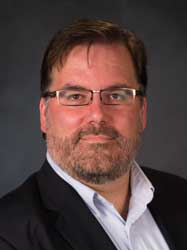Column by John Muenzberg, lecturer of philosophy
A recent article in the Washington Post by Eli Saslow details the transformation of a man from white supremacist to an advocate for multiculturalism. While one could describe this story as the power of the liberal arts to transform individuals, that would be too simplistic. The details of his transformation can teach us about the difficulty of changing our beliefs, especially if that means rejecting what your family and friends believe.
The article is about Derek Black. His parents are central to the modern white supremacist movement. Black spoke at rallies and radio shows and was being groomed as a spokesperson and future leader.
After Black enrolled in New College of Florida to study Medieval European history, he encountered new ways of thinking, new viewpoints and a new circle of unlikely friends. These encounters slowly changed Black’s thinking until he publicly repudiated the white supremacy of his family.
Black did not reject white supremacy because of a diversity seminar, a novel he read nor even a very special professor. At first, he rejected many of the things that he was taught at school. Only over time did he realize that many of the things his family talked about were false. Only after multiple classes did he learn information that he was unaware of. It took a semester studying abroad to encounter ways of living that truly challenged his own.
But this was still not enough. Black had begun to question individual things that he was taught, but he still thought of himself as an advocate for white people. He still believed that immigration would lead to “white genocide.”
Black’s prior work in the white supremacist movement became known on campus, and he encountered resistance from other students. But a few students decided that rather than ostracizing Black, they would approach him with an offer of friendship. He accepted, and over the course of weeks and months they got to know each other and began to discuss his views.
There was no single epiphany. No pithy comment or biting insult changed his mind. His change of attitude came after repeated discussions with a group of people over the course of several months. Their friendship engendered trust between them, but that alone did not change his mind. It was the fact that they actually discussed their attitudes towards race and culture, even though they disagreed.
One factor that kept Black from renouncing white supremacy was that he would be renouncing what his family believed. Saslow documents how Black was reluctant to admit his change of attitude to himself because he was reluctant to contradict his father. Ultimately, he released a statement to the Southern Poverty Law Center and the press rather than confront his father directly.
This article has several lessons for professors and students concerning personal development and intellectual honesty. First: a change of mind is not usually from a single encounter or a rousing speech. It happens over time and after repeated exposure to ideas.
Second: insults, threats or even ostracism do not generally change people’s minds. As an individual, it might be necessary to remove someone from your life for your own well-being. Widespread ideas and social movements cannot be changed this way. Communities need to band together, encounter people and change their ideas through effort.
Lastly: history and family ties are not easy to overcome. Even when we recognize new ideas, it can be hard to accept them if they are counter to ideas we were raised with. This also applies to parental ideas of success. It can be hard to fully realize your interests or life choices if your parents reject them. For Black, this required fully rejecting the family business. For most of us, this disagreement will be less dramatic.































































































